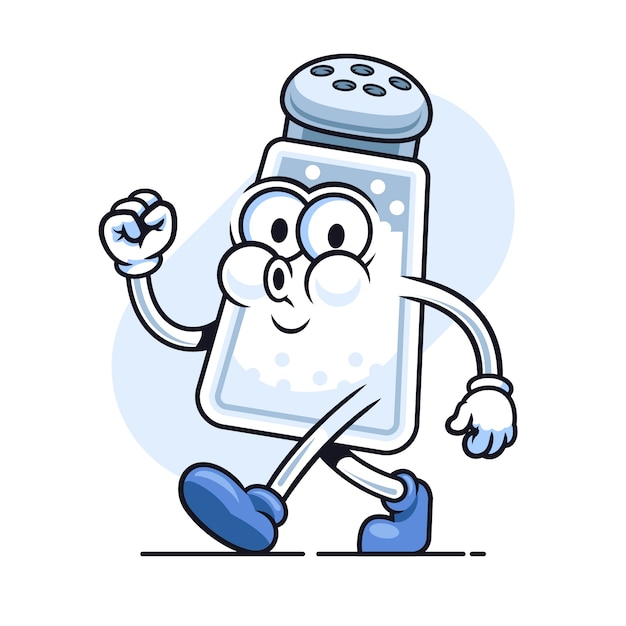
### Why Is Iodine Essential for Your Thyroid?
The thyroid gland uses iodine to create the hormones triiodothyronine (T3) and thyroxine (T4), which are crucial for the functioning of your heart, brain, and muscles.
Situated at the front of your neck just below the larynx, the thyroid gland plays a critical role in your overall health. This butterfly-shaped gland is often called the “master gland” because it produces T3 and T4 hormones. These hormones get their names based on the number of iodine molecules they contain; T3 has three iodine molecules, and T4 has four. They regulate your body’s metabolism, affecting functions like heart rate, brain activity, and muscle performance.
Iodine and Thyroid Disorders
According to the American Thyroid Association, about 20 million Americans deal with some form of thyroid disease, and approximately 12 percent of the overall U.S. population is expected to experience thyroid issues at some point in their lives. Unfortunately, more than half of those with thyroid disorders are unaware of their condition.
Iodine and Hypothyroidism
Hypothyroidism is when the thyroid is underactive and doesn’t produce enough hormones. Around five percent of Americans over the age of twelve suffer from this condition, with women and people over the age of 60 being more commonly affected. Initial symptoms can be mild and include fatigue, depression, unexplained weight gain, intolerance to cold, brittle nails, and muscle and joint pain. As the condition progresses, symptoms can worsen to include irregular menstrual periods, puffy face, hands or feet, impaired hearing, hoarseness, dry skin and hair, and thinning hair.
Although genetic factors, congenital disabilities, autoimmune disorders like Hashimoto’s disease, thyroid surgery, radiation treatment, pregnancy, or certain long-term medications can cause hypothyroidism, the most common cause worldwide is iodine deficiency. In areas where iodine-rich foods are available, autoimmune thyroiditis is the main culprit. Secondary hypothyroidism, on the other hand, results from the pituitary gland failing to signal the need for thyroid hormone production.
Iodine and Hyperthyroidism
Hyperthyroidism occurs when the thyroid is overactive and produces too much thyroxine (T4), leading to a metabolic imbalance. In the U.S., less than two percent of the population suffers from this condition, with women 2 to 10 times more likely to develop it than men. Older individuals and those with type I diabetes, adrenal insufficiency, thyroiditis, ovarian or testicular cancer, a family history of thyroid disease, or pernicious anemia are at higher risk. The most common cause of hyperthyroidism in the U.S. is Graves’ disease, an autoimmune condition that affects women more frequently than men.
Symptoms of hyperthyroidism include fatigue, nervousness, increased appetite, irregular or rapid heartbeat, difficulty sleeping, mood swings, trembling, and unexplained weight loss. Additional signs can include goiter, menstrual disorders, flushed skin, intolerance to heat, diarrhea, hair loss, and protruding eyes. If left untreated, hyperthyroidism can increase the risk of heart disease, stroke, or osteoporosis.
Iodine can help reduce hormonal secretion in hyperthyroidism, although the precise mechanics are not entirely understood. In some severe cases, radioactive iodine is used.
How Much Iodine Should I Take?
The amount of iodine you need daily depends on your age. According to the National Institutes of Health (NIH), here are the recommended daily allowances (RDA) of iodine in micrograms (mcg):
– Infants birth-6 months: 110 mcg
– Infants 7-12 months: 130 mcg
– Children 1-8 years: 90 mcg
– Children 9-13 years: 120 mcg
– Teens over 14 and adults: 150 mcg
– Pregnant women: 220 mcg
– Breastfeeding women: 290 mcg
Some healthcare specialists believe these recommendations may be too low given iodine’s critical functions. If you have a thyroid condition, your healthcare provider may recommend a different amount. Always consult your provider before making changes to your iodine intake.
How Iodine Deficiency Affects the Thyroid
Iodine deficiency is a significant global issue and the leading cause of preventable mental disabilities. The World Health Organization estimates that around 1 billion people suffer from health issues related to a lack of iodine. Although iodine has been added to table salt since 1924, iodine deficiency is on the rise again in the Western world, partly due to dietary changes.
A lack of iodine prevents the thyroid from producing enough T3 and T4 hormones, which are essential for brain, heart, muscle, and bone functions, as well as metabolism.
How Do I Know if I am Iodine Deficient?
While there’s no specific blood test for iodine levels, thyroid function can be measured through blood tests for thyroid hormone levels and thyroid-stimulating antibody immunoglobulin (TSI). The appearance of a goiter may also indicate an iodine imbalance.
Iodine, the Thyroid, and Pregnancy
During pregnancy, higher levels of estrogen and human chorionic gonadotropin (hCG) hormones trigger increased thyroid hormone production, essential for the baby’s development. Sometimes, pregnancy can lead to an overactive thyroid, known as pregnancy-induced Graves’ disease, causing symptoms like fatigue and irritability, which are often overlooked as normal pregnancy complaints. Hyperthyroidism during pregnancy can result in complications like high blood pressure, anemia, and low birth weight.
Sources of Iodine
To ensure sufficient iodine intake, include iodine-rich foods or supplements in your diet. Seaweeds like nori, kelp, and dulse are excellent sources. The iodine content in fruits and vegetables depends largely on the soil in which they are grown. Iodized salt is another source, although table salt carries other health concerns. Many people prefer Himalayan crystal salt for its natural iodine content.
Iodine Supplements
Many people consider iodine supplements essential for maintaining adequate iodine levels. There are various forms such as potassium iodide and sodium iodide. Nascent iodine, also known as nano-colloidal iodine or atomic iodine, is another option. This type of iodine is readily absorbed by the body, supporting optimal iodine levels and thyroid health.
Conclusion
Understanding the crucial role iodine plays helps in maintaining thyroid health and overall well-being. Ensure you’re meeting your body’s iodine needs through diet or supplements and consult with your healthcare provider to determine what’s best for you.



